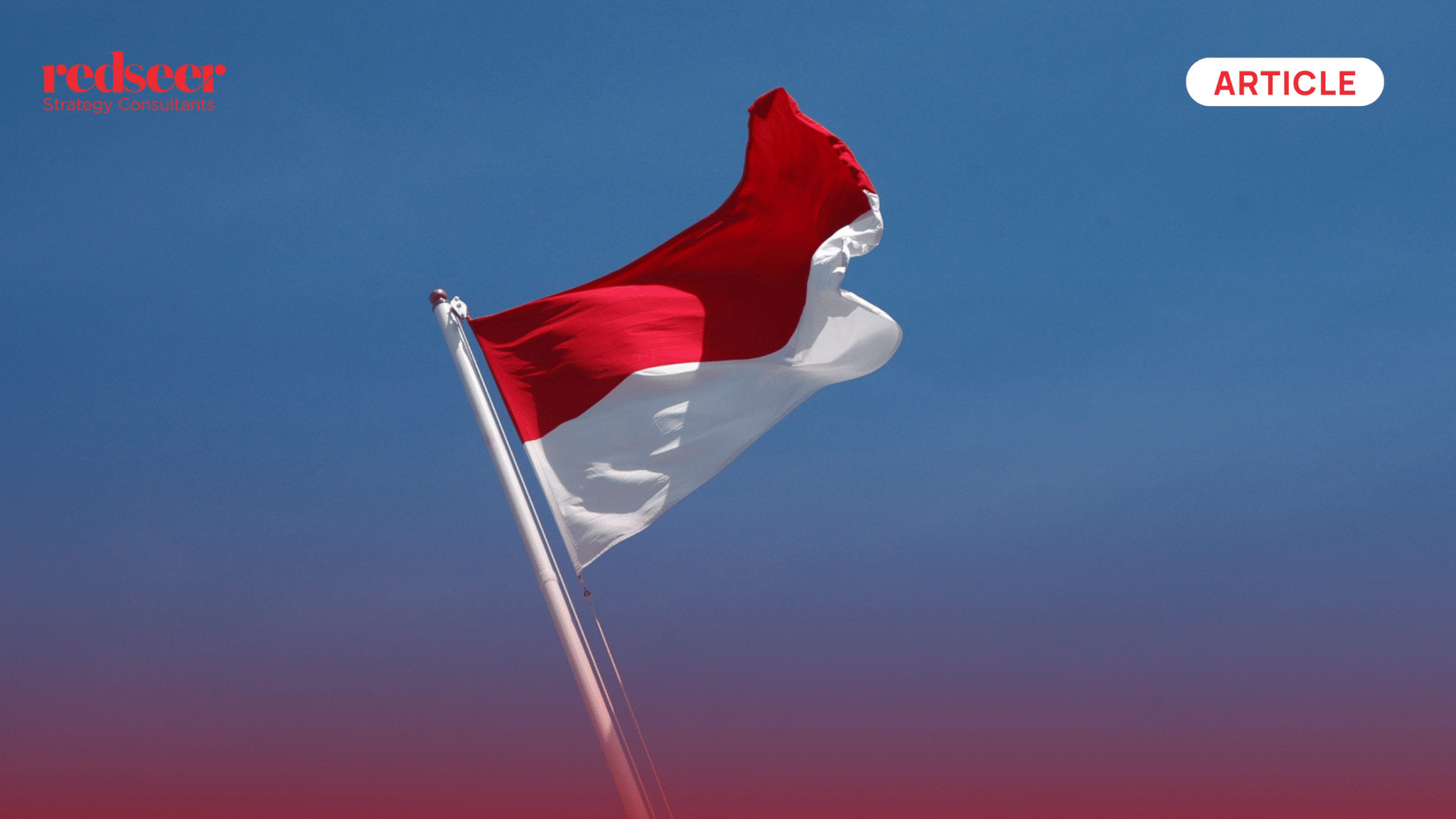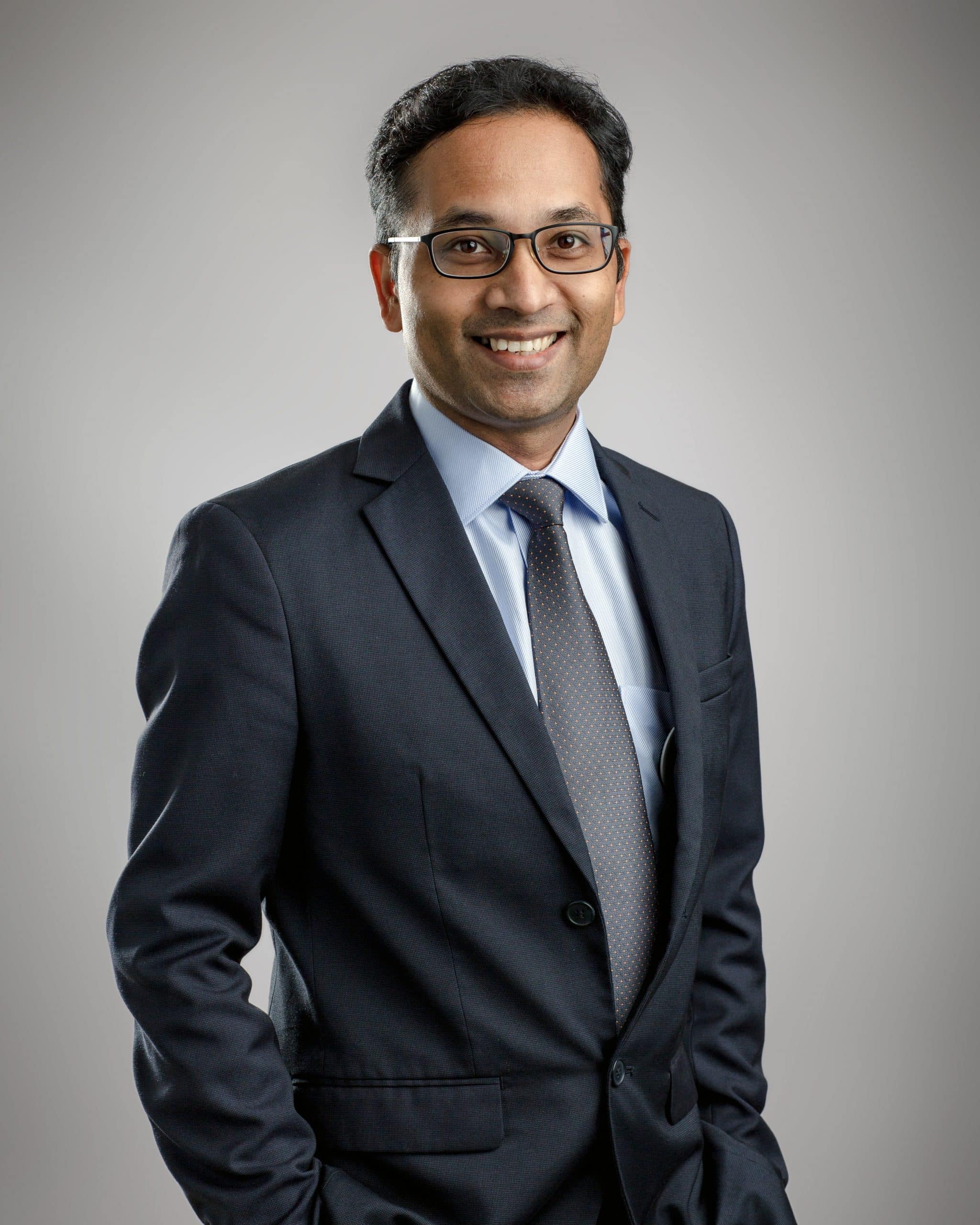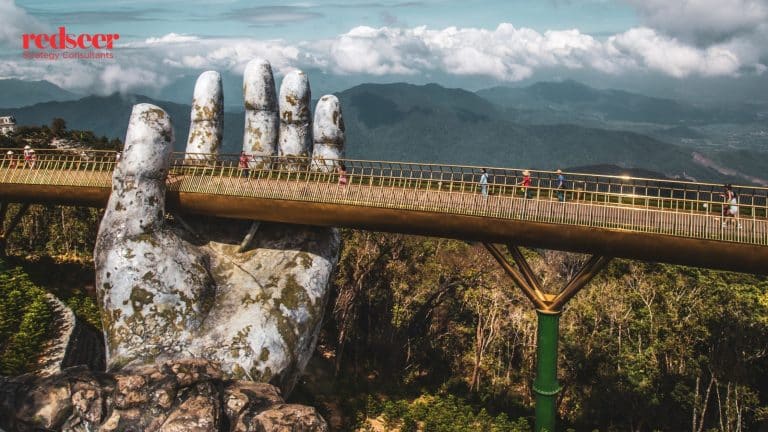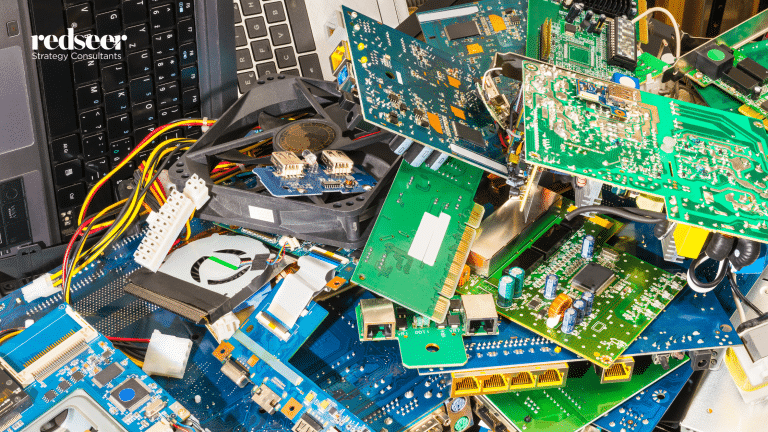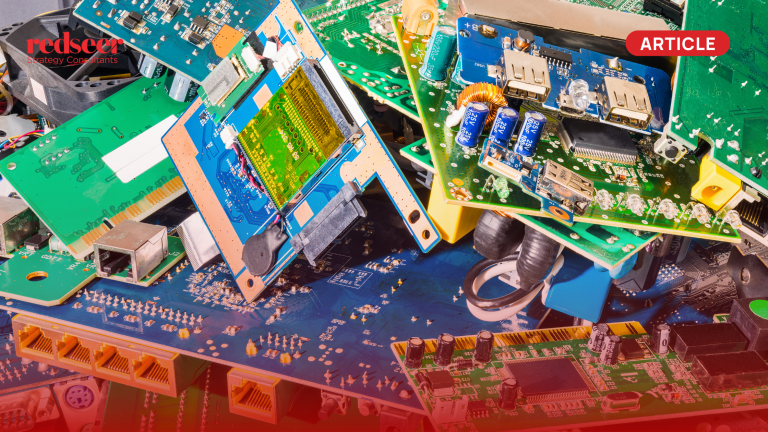On 20 October 2024, Prabowo Subianto was sworn in as Indonesia’s 8th president following a landslide victory earlier this year. As a former military officer, he is characterized as disciplined, straightforward, and highly-organized. However, heavy expectations loom about Prabowo’s shoulders – especially from the business community. His predecessor, Joko Widodo, brought about ‘Indonesia’s digital spring’ as digitalization of all aspects of life—from health, commerce, to government—went in full swing.
In this piece, we will cover a few key ministries and sectoral policy positions under Prabowo’s new cabinet, along with looking into figures that would be key for businesses, consumer internet and beyond.
1. The Prabowo Administration: Rising potential to match Jokowi’s economic performance
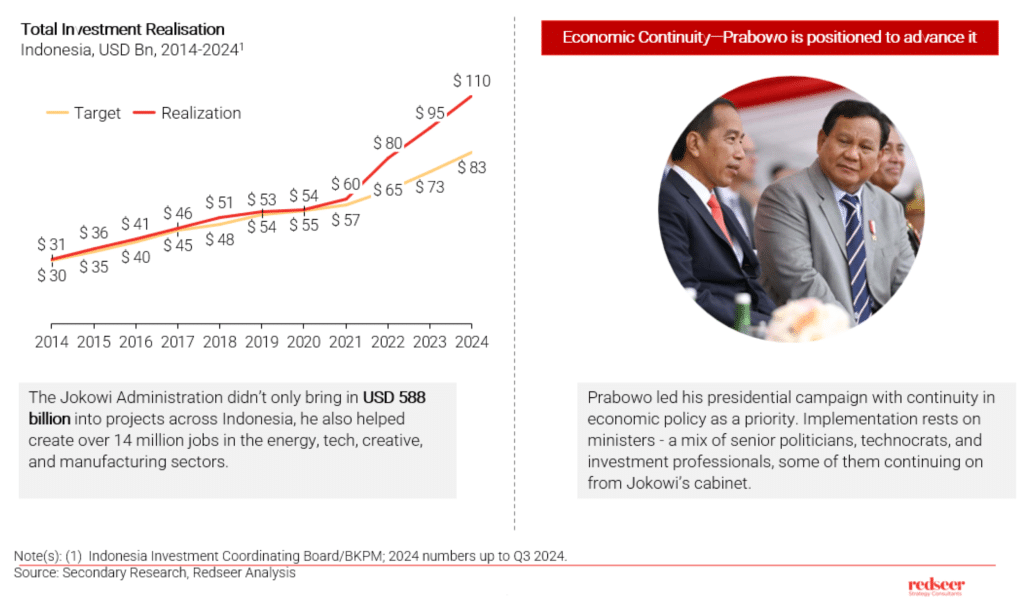
Want to evaluate new investment and M&A opportunities?
Joko Widodo’s economic policies saw an investment realization of USD 588 billion which created 14 million jobs over the course of 10 years (BKPM).
Many of Joko Widodo’s ‘megaprojects’ such as roads, communications towers, and bridges, have propelled business in Indonesia—particularly digital businesses.
Prabowo have promised economic continuity – which we have addressed in an earlier piece. The success of this promise rests on Prabowo’s cabinet—which includes some major changes in terms of organization and scope.
2. Technocrat-Minister Budi Santoso’s Blueprint to Champion MSMEs and Export-Oriented Industries
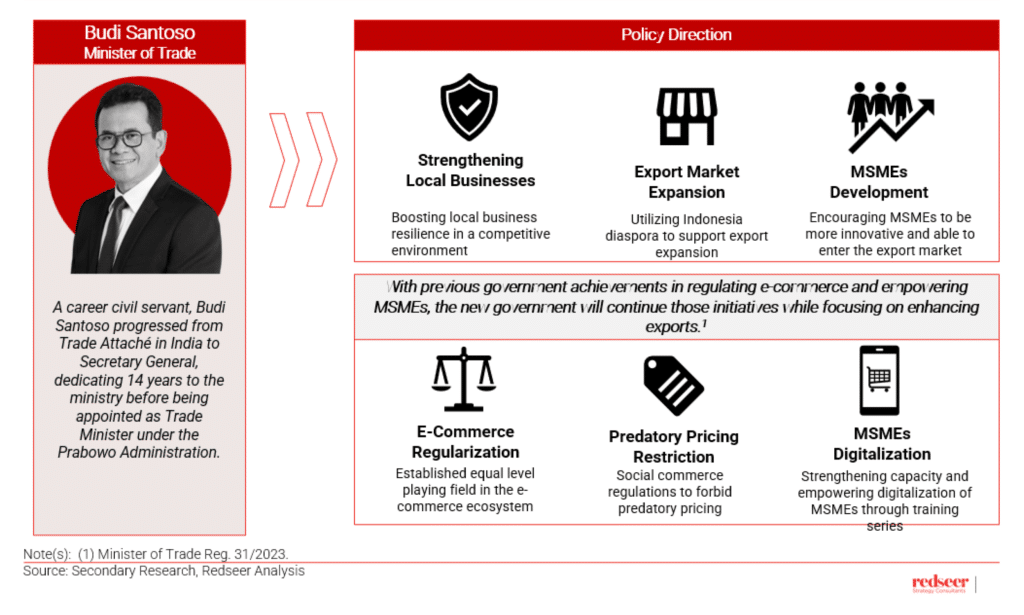
The Indonesian ministry of trade is authorised to govern exports, imports, and now, e-commerce.
At the head of the ministry is an experienced civil servant who led the ministry through digital transformation—Budi Santoso.
Starting his career as a trade attache, Budi Santoso brings a wealth of experience to strengthen prior government policies for MSMEs and drive an export-oriented market.
With a vision to enhance MSMEs growth, he aims to build resilience in local businesses, empowering them to compete in a global market. By embracing e-commerce and supporting local enterprises, he seeks to boost Indonesia’s trade and expand its reach internationally
3. Diversifying Indonesia’s Tourism Landscape: A New Focus on Emerging Destinations
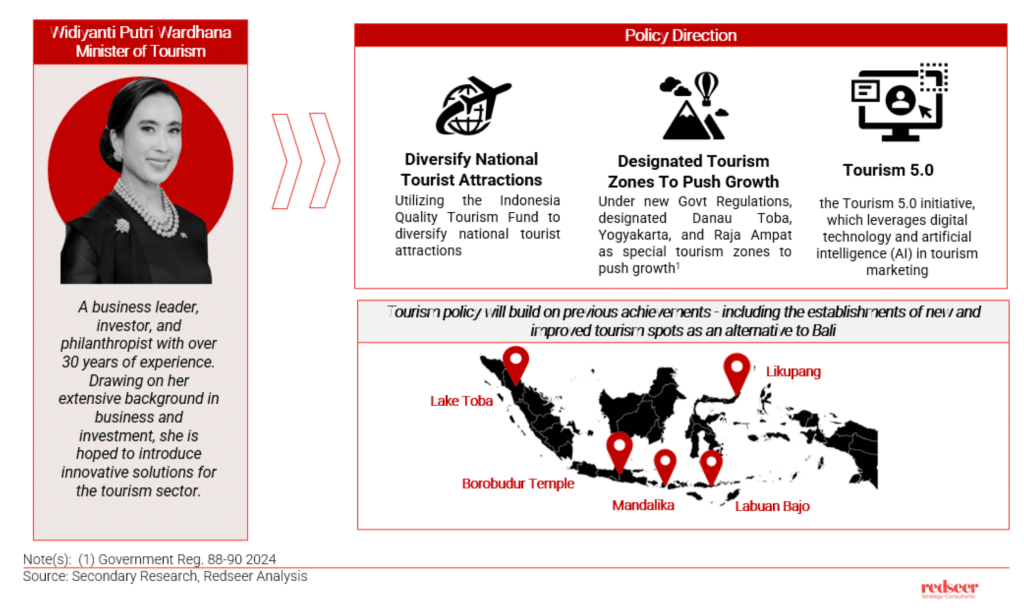
Widiyanti Wardhana, the newly appointed Minister of Tourism, will maximize the use of technology and AI to promote Indonesia’s diverse national attractions globally, supported by the Indonesia Quality Tourism Fund (IQTF) valued at $126 million.
Her business and investment experience, along with strong ties to the Indonesia Chamber of Commerce and Industry, mark a significant step for the tourism sector as the Prabowo administration reinforces its alignment with business interests.
4. Expanding Indonesia’s Creative Industries: Highlighting Emerging Sectors
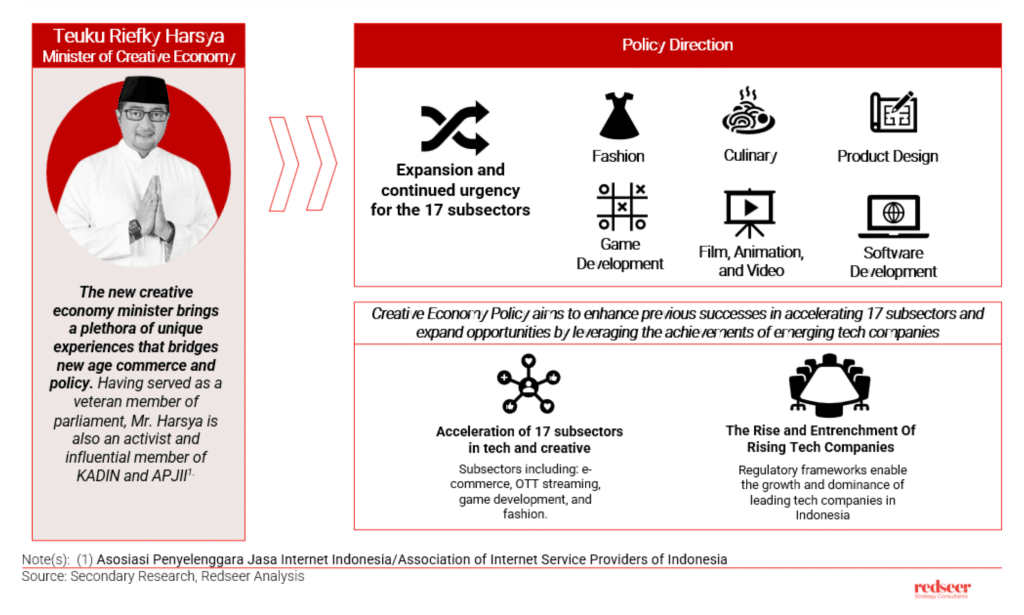
Teuku Riefky Harsya brings a range of experiences to expand on the 17 priority tech & creative subsectors.
Recognizing opportunities in tech and the rising demand for digital services like OTT and game development, he sees strong potential to accelerate growth in creative economy industries.
Like Widiyanti Wardhana, he also has strong ties with the Indonesian Chamber of Commerce, signaling an administration closely aligned with business opportunities.
5. Cyber Security and equitable regulation becomes key with expanded scope of work for Information ministry
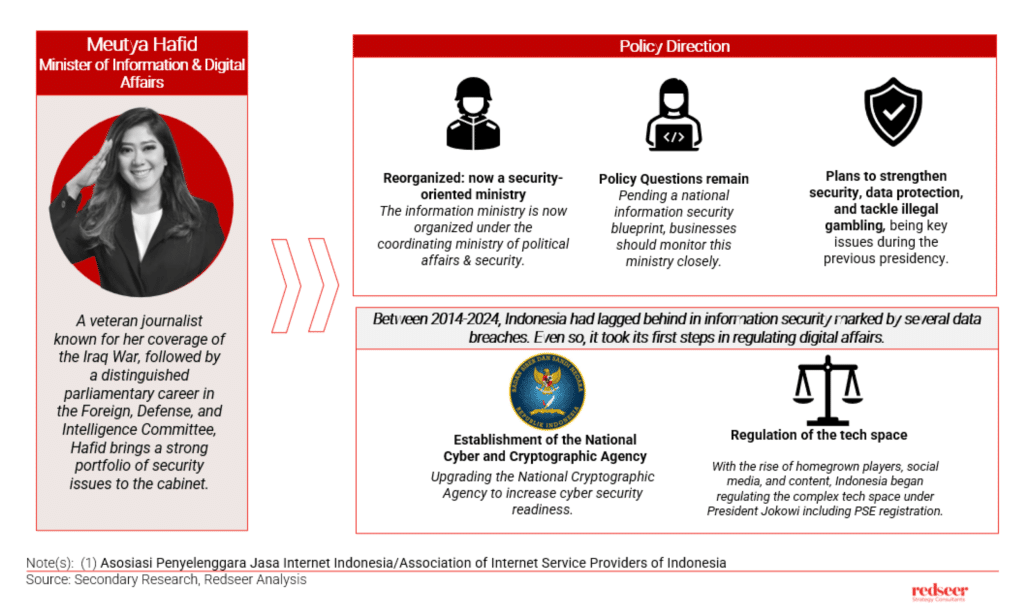
One of Prabowo’s key policy points is the reorganization of the Information Ministry to include a distinct digital and security role, especially with the rise of AI and digital crimes.
During the Jokowi administration, Indonesia was faced with a plethora of internet-related polemics—from major data breaches, illegal online gambling, and data protection.
With the appointment of Meutya Hafid, a distinguished parliamentarian and member of the Foreign, Defense, and Intelligence Committee (Komisi I), Prabowo strive to look to strengthen Indonesia’s cybersecurity.
5. Channelling business interests: Gen. (Ret.) Luhut Binsar Pandjaitan and Hashim Djojohadikusumo act as key figures for the Prabowo Administration

Close to the new president are two veteran figures.
Hashim Djojohadikusumo, his younger brother, has been involved in Indonesia’s business landscape while Prabowo devoted his life to public service as a soldier and statesman.
Now serving in the Indonesia Chamber of Commerce’s Advisory Board, Hashim is in prime position to bridge the needs of Indonesia’s ‘business class’ to public policy.
Meanwhile, Jokowi’s most-reliable man returns. While not serving as minister, former Coordinating Minister for Maritime Affairs & Investment (MARVES) Luhut Binsar Pandjaitan takes up an advisory role in Prabowo’s cabinet. He heads the National Economic Council—whose members are yet to be known.
Pak Luhut has had a long history with Prabowo—dating from their youth as army cadets, up to securing his return to Indonesia. Following his military retirement, Luhut heads the coal mining group Toba Sejahtera—and is behind many of the nation’s EV and investment initiatives.
Prabowo’s cabinet demonstrates a strong commitment to business interests and aims to advance economic performance. This renewed focus on prioritizing digital economy reflects a pivotal moment for Indonesia’s development.

